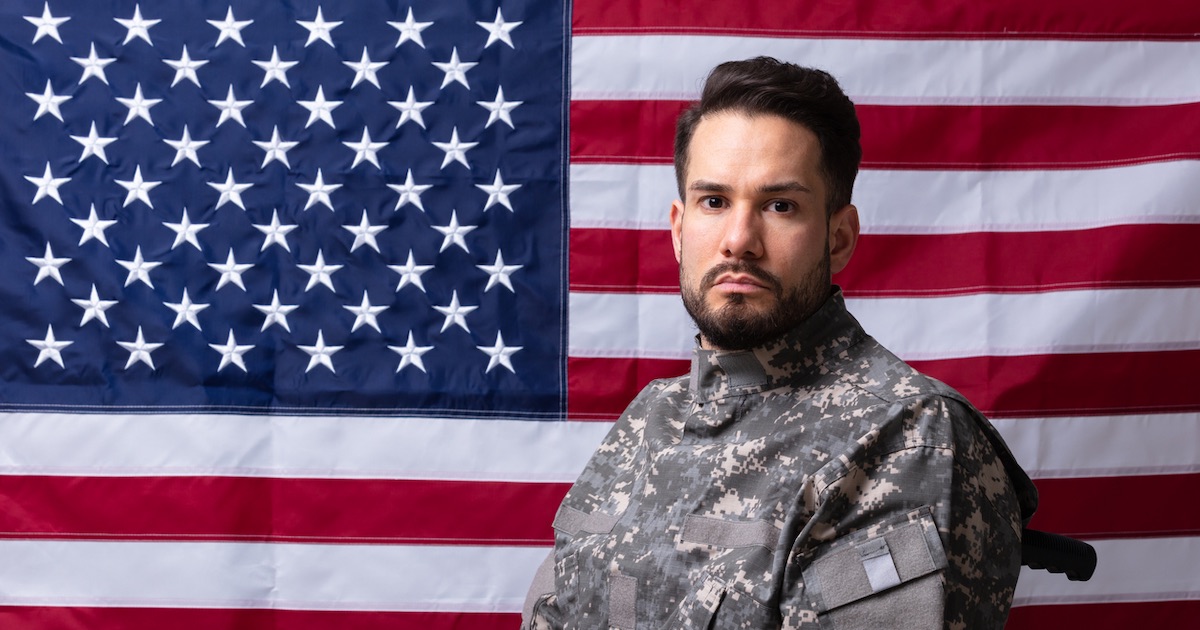
21 Feb 2024 Mark Mostert: Prioritize Resources for Veterans, Not for Illegal Aliens
Are our military veterans being shortchanged to support our nation’s influx of illegal immigrants?
In a commentary published at The Washington Times, Dr. Mark P. Mostert of our Able Americans program clears up the confusion — and the news is alarming:
[W]hile the VA does not pay for medical care for illegals, considerable effort, resources and money are spent to process illegal alien medical claims within the VA. Any resource-siphoning from the true focus of the VA — military veterans who have served their country — should be urgently reconsidered.
Read Mark’s commentary in full below.
It’s no secret that the Department of Veterans Affairs is in need of a major overhaul. Getting veterans the benefits they deserve is often an incredibly difficult task on all sides. Bureaucratic inertia, complicated rules and huge backlogs plague the entire endeavor.
Recently, there has been some churn around an obscure process that is raising concerns that veterans are being shortchanged in favor of illegal aliens — specifically, that the VA is actually paying for illegal immigrants’ health care. Some members of Congress assert that this is the case; the VA denies the charge.
To correct this alleged discrimination, Republican Sens. Mike Bost of Illinois and Tommy Tuberville of Alabama have introduced the No VA Resources for Illegal Aliens Act, which would prohibit the VA from using any resources for services for illegals. In the words of the bill, it would prevent the VA from using its “resources to provide health care or engage in claims processing for illegal immigrants.”
On the other hand, a VA spokesperson said: “This has no impact [on] veteran care or services. At no time are any VA health care professionals or VA funds used for this purpose.”
Both sides are right and wrong.
Here’s what’s going on.
Since 2002, U.S. Immigration and Customs Enforcement has had an arrangement with the Department of Veterans Affairs that the VA would process reimbursement claims from providers for health care costs of illegal aliens in ICE custody via the VA’s Financial Service Center. The center is also contracted with the Department of Defense, the Surface Transportation Board and the Office of Refugee Resettlement for the same services. The federal government, via ICE, reimburses the VA for the work.
Mr. Rost and Mr. Tuberville are right about not wanting any resources involving the VA to be used on illegal aliens. They are wrong, however, in claiming that the VA is paying for health care for illegal aliens at the expense of veterans. ICE reimburses the VA for the contracted work.
The VA is correct that it is not funding illegal alien health care at the expense of veterans’ care. On the other hand, claiming that the VA does not devote significant resources and energy to processing of medical claims via ICE is inaccurate. According to its own data, the VA Financial Service Center processed 161,538 ICE claims totaling $94.3 million in 2022.
That’s more than a drop in the bucket.
This is at the same time that veterans benefit claims are significantly backed up — up from 150,000 in 2022 to 417,181 in 2023. While part of the backlog relates to expanded benefits for veterans under the 2023 PACT Act, long backlogs are a chronic problem. Further, the VA routinely experiences a high turnover of claims processors who are unable to keep up with the demands of processing and a performance points system that hurts morale and leads to unnecessary errors.
When all is said and done, this issue demonstrates that while the VA does not pay for medical care for illegals, considerable effort, resources and money are spent to process illegal alien medical claims within the VA. Any resource-siphoning from the true focus of the VA — military veterans who have served their country — should be urgently reconsidered.
These wayward resources, if applied to veterans, would make a significant difference in getting our veterans the help they need and deserve.
Mark P. Mostert is senior researcher at Able Americans, the National Center’s project to support Americans living with intellectual, developmental and physical disabilities. This first appeared at The Washington Times.




